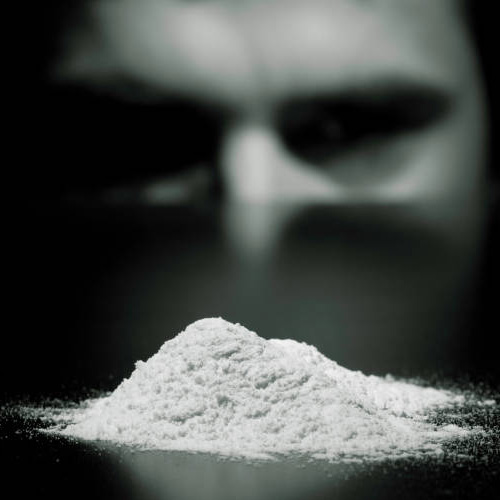
What Is Freebasing Cocaine And Why Do You Need Urgent Detox?

Freebasing cocaine – a term that evokes intrigue and concern. It’s not just about using cocaine; this practice carries its own weight and story. But what is freebasing? It’s when cocaine, a stimulant drug, is chemically altered to create a more potent form that can be smoked, leading to a faster and more intense high.
The scope of this issue is troubling and widespread, with countless lives touched by the grip of freebasing drugs. Understanding the urgent need for detox is paramount, as freebasing side effects and consequences are both severe and life-altering.
So, let’s look into the world of freebasing cocaine and explore why it’s an urgent matter to get detox. Read on to learn more.
Avoid The Negative Effects of Cocaine with Elite Home Detox
Regular cocaine usage can result in lasting harm and other long-term repercussions, and these effects are dependent on how the drug was predominantly used.
Call us or use the button below to schedule a consultation. We’re ready to assist you in making a full and lasting recovery.
Table of Contents:
How Freebasing Cocaine Works
Freebasing cocaine is a process that transforms freebasing drugs into a smokable form, resulting in a rapid and intense high.[1]
The process begins by mixing cocaine hydrochloride with a strong alkaline solution, such as baking soda, to remove the hydrochloride component. This creates a freebase form, which is heated and vaporized for inhalation.
Once inhaled, freebase cocaine quickly crosses the blood-brain barrier due to its volatile nature, causing an immediate and intense euphoria. It prompts the release of dopamine, a neurotransmitter associated with pleasure, resulting in a rush that is more potent than snorting or injecting cocaine.
This method carries significant risk factors. Freebasing can lead to severe freebasing side effects, including heart palpitations, respiratory issues, and a higher risk of addiction. The production process itself is hazardous, with the potential for explosions due to volatile chemicals.
The Urgent Reasons for Detox
Understanding the urgent reasons for freebasing detox is essential. Often shrouded in risk and peril, this process significantly affects an individual’s life from various angles.
- Physical Health Risks: Freebasing cocaine can be dangerous for your physical health. In extreme cases, inhaling the drug’s vapors can lead to severe respiratory issues, including coughing, lung damage, and even respiratory failure.[2] Freebasing often involves inhaling toxic fumes, which can damage the lungs, throat, and eyes. These physical health risks are nothing to be taken lightly, making detox urgently necessary to mitigate these life-threatening effects.
- Mental Health Implications: The mental health implications of freebasing are equally distressing.[3] Users often experience severe anxiety, paranoia, and hallucinations, leading to a chaotic mental state. The relentless pursuit of the next high can result in heightened stress and emotional turmoil. These psychological scars necessitate detox not just for survival but to regain mental equilibrium.
- Strain on Relationships: Freebasing doesn’t only affect the user; its effects extend into the social sphere. It strains relationships with family and friends, as the drug becomes the user’s focal point, often leaving loved ones feeling helpless and disillusioned. The detox process helps rebuild these fractured connections, mend trust, and find a path to recovery that doesn’t alienate those who care.
- Financial Toll: Freebasing cocaine is taxing on health, relationships, and finances. The cost of procuring cocaine and the paraphernalia needed for freebasing can deplete one’s financial resources rapidly. Users may find themselves in a cycle of debt, unemployment, or criminal activity, further perpetuating the destructive nature of this addiction. Seeking detox can help break this cycle, allowing individuals to regain control of their finances and economic stability.
Recognizing Freebasing Cocaine Addiction
Identifying the telltale signs of freebasing cocaine addiction is crucial for timely intervention. These signs encompass a spectrum of behavioral, psychological, and physical indicators, often nuanced and overlooked.[4]
- Individuals caught in the grip of freebasing cocaine may exhibit erratic and secretive behavior. Frequent mood swings, drastic changes in daily routines, and a growing sense of isolation are common.
- Users might withdraw from social activities, often prioritizing drug use over relationships

- Unexplained financial troubles and borrowing money from loved ones can signal an addiction’s financial strain.
- The psychological toll of freebasing is often hidden behind a facade. Among the freebasing side effects are intense anxiety, paranoia, and hallucinations, which can manifest in erratic thought patterns and unpredictable behavior.
- They may become overly defensive when questioned about their drug use, denying the severity of their addiction.
The physical signs of freebasing cocaine addiction are subtler but equally telling. Look for dilated pupils, frequent nosebleeds, and a persistent, hacking cough from inhaling the drug’s toxic fumes. Burn marks on fingers and lips from smoking cocaine can also be a clear indicator.
The Detoxification Process
When confronting freebasing cocaine addiction, understanding the nuances of the freebasing cocaine detox can be the difference between a successful recovery and a difficult journey. Here’s a closer look at the key aspects of detox:
Medical detox, often administered in a clinical setting, uses medication to manage withdrawal symptoms.[5] This approach is crucial for individuals with severe addiction, providing close medical supervision to ensure safety and minimize the discomfort of withdrawal.
In contrast, non-medical detox relies on psychological support and counseling to help individuals navigate withdrawal. It can be an effective choice for those with milder addiction cases who don’t require intense medical intervention.
The decision between these two methods hinges on the acuteness of the addiction and the specific needs of the individual.
Detox facilities come in various forms, catering to different needs. Selecting the right option depends on factors such as the addiction’s severity, personal circumstances, and the level of support required.
- Inpatient facilities require individuals to stay under 24/7 supervision for an extended period, offering a highly structured environment to recover. Patients have access to professional medical care throughout their stay.
- Outpatient programs allow individuals to attend sessions and then return home, offering greater flexibility. Patients usually have to visit a clinic for any medical treatments they may require during recovery.
- In-home detox offers comprehensive, private detox and recovery in the patient’s home. A nurse stays onsite during detox, offering immediate medical attention and supervision.
Professional guidance is an essential component of the detox process. Trained counselors, medical staff, and therapists play a crucial role in helping individuals navigate withdrawal’s physical and psychological challenges.
They provide coping strategies, emotional support, and a structured approach to detox. Their expertise significantly increases the chances of a successful recovery and the development of crucial skills to maintain sobriety.
Freebasing cocaine detox is a critical first step on the path to recovery. The process involves several distinct steps, each crucial in the journey toward a drug-free life.
- Assessment and Evaluation: The first step in the detox process is a thorough assessment and evaluation by medical professionals. This includes a physical examination and a comprehensive review of the individual’s medical and addiction history. The goal is to determine the severity of the addiction, any co-occurring medical or mental health conditions, and the appropriate level of care needed.
- Medical Stabilization: The next step for individuals with severe addiction is medical stabilization. This may involve the administration of medications to manage withdrawal symptoms, particularly for those transitioning from freebasing cocaine. Medical supervision is essential during this phase to ensure the individual’s safety and comfort.
- Psychological Support: Detox isn’t just about the physical aspect; it’s also about addressing the psychological and emotional challenges.[6] During this step, individuals may participate in therapy or counseling to better understand their addiction, identify triggers, and develop coping strategies.
- Withdrawal Management: Withdrawal from freebasing cocaine can be challenging. The detox process includes careful management of withdrawal symptoms, which may vary in intensity and duration. Medications may be prescribed to alleviate symptoms like anxiety and insomnia.
- Ongoing Support and Aftercare: Once the initial detox process is completed, the journey is far from over. Ongoing support and aftercare are crucial to maintain sobriety. This can involve outpatient therapy, support groups, and relapse prevention strategies to ensure a sustained recovery.
Withdrawal Symptoms and Management
Support Systems for Recovery
Counseling and Therapy
The Cost of Treatment
Addressing freebasing cocaine addiction often comes with significant financial considerations. Let’s delve into the financial aspects, insurance coverage, and affordable alternatives while keeping in mind that in-home detox can be a cost-effective solution.
The cost of addiction treatment can widely vary based on several factors. On average, a 30-day inpatient rehab program may cost anywhere from $6,000 to $20,000 or more. For a 90-day program, the cost may exceed $30,000.
This price range depends on the facility’s location, amenities, and treatment approach. Transportation to and from treatment centers, missed workdays, and other indirect costs can add to the financial burden.
Insurance can help offset treatment costs. The Mental Health Parity and Addiction Equity Act (MHPAEA) requires most insurance plans to cover addiction treatment similar to other medical conditions.
The Affordable Care Act (ACA) expanded coverage for addiction treatment, making it more accessible. Some plans cover detox, therapy, and medications.
On average, insurance can cover 60-80% of addiction treatment costs. Verifying your policy’s coverage and inquiring about potential copayments or deductibles is crucial.
In-home detox is an increasingly popular, cost-effective alternative. It reduces transportation expenses and addresses addiction at its core, teaching individuals the coping mechanisms needed to prevent relapse.
The cost of in-home detox can be significantly lower overall as it aims to equip patients with the tools needed to avoid relapse, reducing the chance of requiring multiple detox and recovery programs.
Non-profit organizations and state-funded programs may also offer low-cost or sliding-scale payment options for drug detox and recovery.
Last Words
Freebasing cocaine is a dangerous practice that transforms the drug into a smokable form, resulting in rapid and intense highs. Urgent reasons for detox include severe physical and mental health risks and strain on relationships and finances.
Detox is the vital first step in breaking free from the grip of freebasing drugs and reclaiming a healthier, more balanced life. It is a critical choice that can save lives and lead to a brighter, addiction-free future. Don’t wait; the urgency of detox is undeniable, and the path to recovery begins with this essential step!
Avoid Cocaine Drug Effects With Elite Home Detox
Although cocaine can cause tremendous euphoria, energy, and mental sharpness in the short term, it can also cause paranoia, impatience, and hypersensitivity to senses. As previously stated, consistent cocaine usage can result in lasting damage and other long-term impacts, and these effects are dependent on how the drug was predominantly used.
Aside from immediate and long-term negative effects, there is always the risk of overdosing, particularly if the substance has been laced with chemicals. That is why, whether you have been addicted for months or years, it is critical to get help. With our handy, tailored in-home detox treatment, Elite Home Detox can assist.
Call us or use the button below to schedule a consultation. We’re ready to assist you in making a full and lasting recovery.


